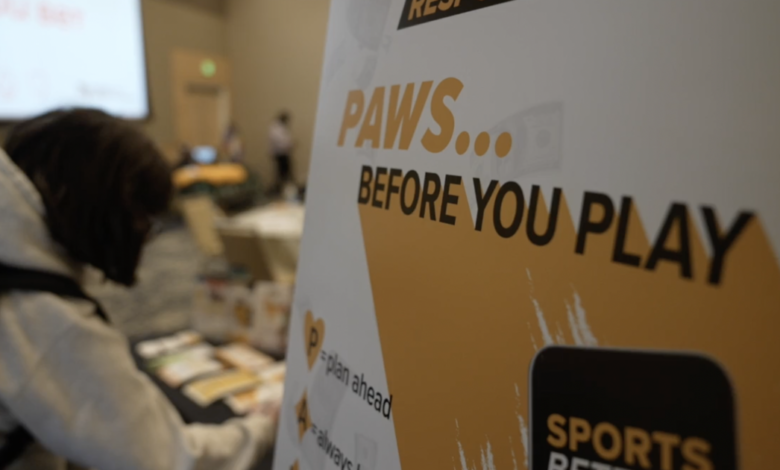
TOWSON, Md. — The fun and games set up on one college campus came with a twist: lessons on preventing gambling addiction.
“It's just a high-risk age group. It's a high-risk demographic,” said Emily Wiegand, assistant director of the Counseling Center at Towson University in Maryland. “We leaned on our addiction knowledge. We leaned on our prevention knowledge.”
March Madness brings a lot of attention to college basketball and betting on which teams will win. That’s become easier in many places, with more than 30 states now allowing sports betting, thanks in part to a 2018 Supreme Court ruling which overturned federal prohibitions on it.
This past fall, Maryland joined those states in making online sports gambling legal.
“We were anticipating that happening, and we were curious, ‘What impact will this have on our student population? Will this increase students’ interest in gambling? Will it increase dialog on campus about gambling?’” Wiegand said. “We wanted to get ahead of that.”
That’s where a new program called, “Tigers Play Responsibly” comes in. It was made possible by a $40,000 dollar grant from the National Council on Problem Gambling, which believes this program could become a model for other schools in how to prevent gambling addiction on campus.
“It kind of feels like, [for] a lot of people, it's become like an obsession, in a way,” said Towson University student Manelle Quao.
Quao, along with fellow student Nina Gault, are both helping provide outreach through the “Tigers Play Responsibly” program.
They say the legalization of online sports gambling makes it easier for college students to access it.
“There has definitely been an increase that I've seen in my friends and peers that have online gambling, specifically,” Gault said.
To try and prevent gambling addiction, the Towson University program recently held an event on campus, called “Get Set, Before You Bet.” Through fun and games, it offered tips on how to avoid too much online gambling, which can be easily done from a smartphone.
“Maybe set a timer on your phone if you're gambling and give yourself a time limit and also a money limit,” Gault advised. “I think the accessibility of that brings a different challenge, but also like an opportunity to educate students in a different way.”
That includes making social media videos about gambling prevention, which are geared toward college students.
“We say, ‘When it's not fun anymore that you should stop,’” Quao said. “Also, have a friend there with you who can also help you stay at your limit."
The program also partnered with a company to create pop-up ads, which show up on gambling websites, whenever those are accessed within a certain radius of campus.
“An ad will pop up that we've created, that will provide information about problem gambling and access to resources,” Wiegand said, “and so hopefully our education gets that message out to them.”
It is all part of taking a chance to stop a problem, before it starts.









